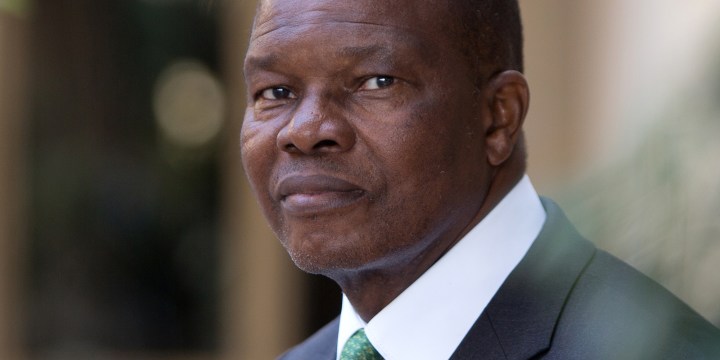BUSINESS MAVERICK OP-ED
Reuel Khoza’s governance edge in rebuilding trust at the PIC

Reuel Khoza helped construct South Africa’s original corporate governance architecture. Now, the corporate veteran has the tough task of leading the PIC’s response to the Mpati report. Finance Minister Tito Mboweni could not have picked a more credible candidate to entrust with this assignment.
Call it fate. Term it serendipity, luck. Finance Minister Tito Mboweni’s appointment of Reuel Khoza to chair the interim board of the Public Investment Corporation (PIC) falls under the aforesaid descriptors.
This is so in light of the very long and equally damning PIC report emanating from the judicial commission of inquiry headed by Judge Lex Mpati. The inquiry was instituted in response to mounting allegations of corporate governance failures at the state-owned asset manager. The almost-1,000-page report is replete with instances of dodgy dealings and conduct unbecoming of custodians of public workers’ pension money.
If ever there was an institution that is too big to fail and which is systemically important to South Africa’s economy and financial sector, the PIC embodies those principles.
One need only look at the rand value of its assets under management, as well as the fact that the PIC stands head and shoulders above its peers on the continent and can go toe-to-toe with comparable institutions in the global sphere.
The latter is alluded to in the appendices of the PIC report, where the Norwegian Government Pension Fund Global’s internal governance practices are cited as examples of how the local asset manager can rebuild trust.
It is for those reasons, among many others, that those who are associated and entrusted with the institution should engender confidence and be beyond reproach. As the PIC report has demonstrated, however, the asset manager became another object lesson about what happens when good corporate governance fails and capture takes hold.
In a country where entrepreneurs with viable ideas are sunk by a dearth of funding, it was painful to read how the PIC’s executives named in the Mpati report used opacity and obfuscation to benefit connected individuals. Furthermore, the PIC took on risky endeavours which had no prospect of good returns as a culture of impunity became increasingly entrenched.
The damage of capture is twofold: reputational and financial.
The previous cohort of executives and non-executives at the PIC did untold reputational damage to the institution, leaving those who are there now with a mammoth salvage job. In addition, there is the arduous task of retracing deals, with a view to recovering losses incurred, instituting disciplinary cases and referring possible criminal and civil matters to the relevant authorities.
Those who have the responsibility of piecing together the PIC’s reputation and recovering money lost will have to do so even-handedly. They have to ensure the process is not only credible, but that it also adheres to the spirit and letter in which the Mpati report was written.
It might not have been apparent in July last year when Mboweni announced the interim board, that Khoza’s inclusion was a masterstroke. But it certainly looks like it, now that the PIC report is out.
Consider that in 1994 Khoza sat on the panel which crafted the country’s King Report on Corporate Governance, the blueprint for how boards should conduct themselves to stand up to scrutiny.
The prevailing principle in the King governance framework is transparency. However, transparency was sorely lacking at the PIC. Its absence created an enabling environment for governance abuses.
Back in 1994, while serving on the King panel: “I made it my business to draw attention to social and environmental concerns that have to do with the sustainability of companies in the long term,” writes Khoza in his book Let Africa Lead, in which he expounds the virtues of an African paradigm of business leadership.
In that same book, Khoza concedes: “Good governance is not a ‘feel-good’ thing. It is hard-edged.”
It is precisely that understanding of the fluidity of governance which makes Khoza a suitable face for what will undoubtedly be a difficult task ahead for him and the rest of the board at the PIC. BM



















 Become an Insider
Become an Insider